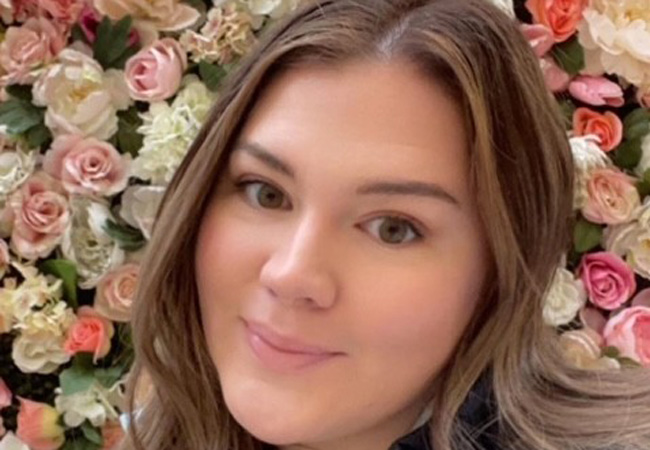
As a passionate educator who’s spent the last nine years living and working in the Canadian Arctic, Lyndsay Tuplin’s focus remains on inclusive and Indigenous education.
Currently based in Lac La Biche, Alberta, where she teaches a Grade 7/8 class with the Lakeland Catholic School Board, she’s committed to creating a learning environment where all students feel valued and supported.
“My passion for Indigenous education has led me to incorporate Indigenous perspectives and teachings into my curriculum, ensuring that my students have a well-rounded and culturally sensitive education,” said Tuplin, who was selected to represent her fellow Master of Education graduates during Yorkville University’s upcoming convocation ceremony in Fredericton, New Brunswick.
“I’ve always been committed to improving the lives of my students and am constantly seeking new ways to engage them in the learning process.”
The Prince Edward Island born-and-raised teacher said she was able to complete her Master of Education in Educational Leadership with Yorkville U, while also planning her wedding, getting married, and travelling internationally – “a true testament to what can be achieved through hard work and determination.”
Tuplin’s dedication to her work has been recognized through various supervisory roles in the schools she has worked in, where she has been able to apply what she has learned throughout her career.
She recently sat down to reflect on her time at Yorkville University and her plans for the future. Here’s what she had to say:
What brought you to Yorkville University? Where were you in your life/career when you decided to continue your studies with us?
As an experienced educator, I sought to advance my education while continuing to live in the community my husband was posted to. Being an RCMP family means that I also needed a program that didn’t require me to be in a specific place and allowed for me to continue to work. Given the logistical challenges and high costs associated with me traveling for in-person classes at other universities, I prioritized finding an online program that would allow me to pursue my studies without the need for frequent travel outside the territory.
What made you decide to pursue your Master of Education degree?
As an educator, obtaining my Master of Education degree allowed for me to expand my career prospects within and beyond the classroom. I thought it would also prepare me to teach at an advanced level should I decide to do so in the future, or in a different province. Working in the Arctic has presented me with numerous opportunities to make a meaningful impact on my students’ lives. Pursuing my master’s degree has enabled me to enhance my skills and refine my approach to teaching, ultimately allowing me to effect positive change in the lives of my students.
What is the most important thing you’re taking away from your studies at Yorkville University?
An important lesson I’ve learned is the significance of perspective. When we consider the world and the people around us, their unique experiences reflect not just their knowledge, but also their identities and their outlook on life. As educators and professionals, we often overlook the fact that what’s common knowledge in one region or country may not be widely known just a short distance away. Through conversations with individuals in different parts of the country and various educational fields, I gained valuable insights into the education system. These interactions allowed me to share my own experiences and influence others’ understanding of different topics. It was fascinating to witness the formation of these connections and the exchange of experiences.
What are your plans after graduation, both immediate and long term?
My immediate plans are to return to my current school and finish the academic year teaching spilt 7/8. It is my plan to continue my education and obtain my Ed. D with focus on neuroscience of learning, with particular interests on students with FASD and how we as educators can help their brains better process learning.
If you offered one piece of advice to an incoming student, what would that be?
I highly recommend participating in all of the seminars. Engaging with classmates from different locations and establishing connections with my professors was crucial to my success in the program. It provided me with diverse perspectives on theory and the subject matter, as well as the opportunity to form friendships that offered support and motivation during challenging times in my studies.






